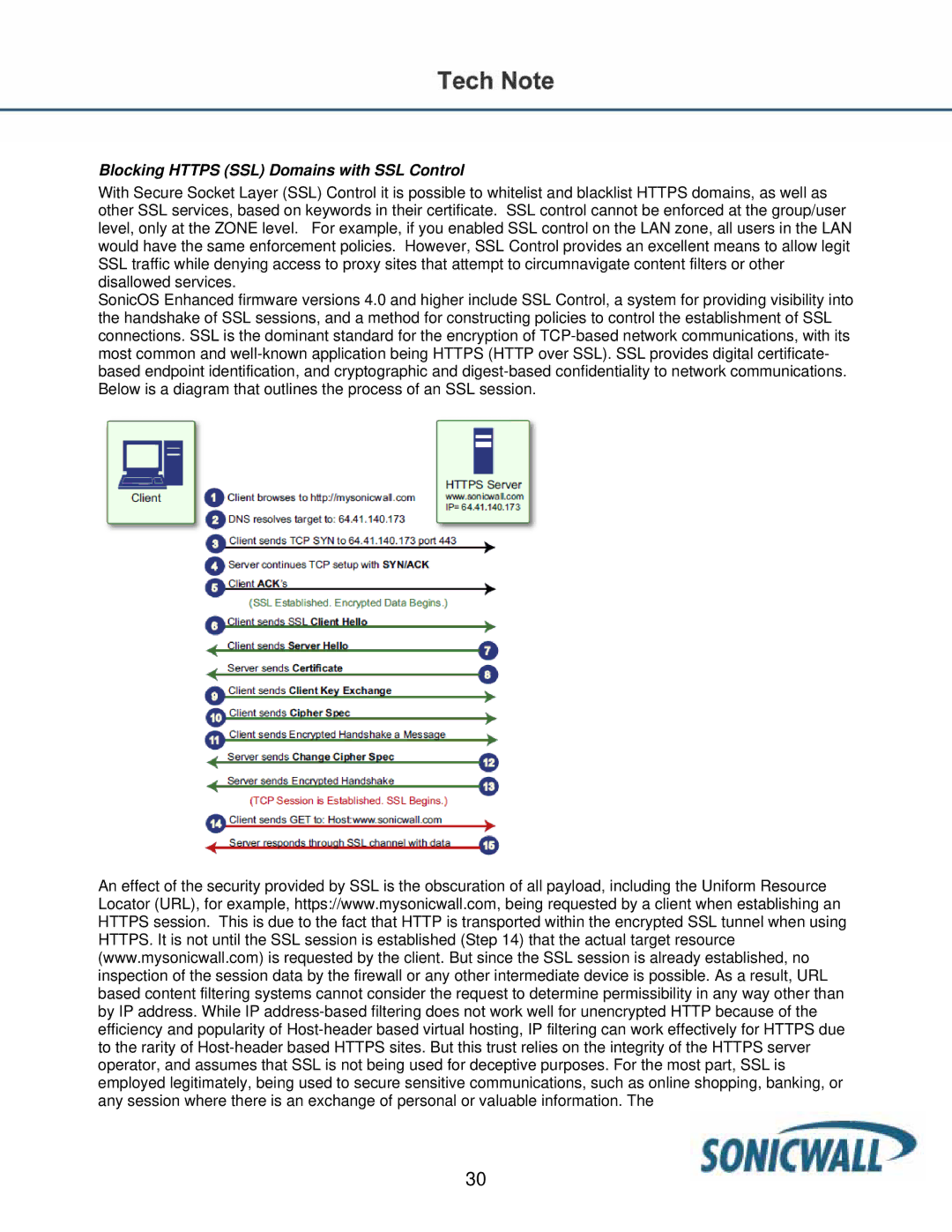
Blocking HTTPS (SSL) Domains with SSL Control
With Secure Socket Layer (SSL) Control it is possible to whitelist and blacklist HTTPS domains, as well as other SSL services, based on keywords in their certificate. SSL control cannot be enforced at the group/user level, only at the ZONE level. For example, if you enabled SSL control on the LAN zone, all users in the LAN would have the same enforcement policies. However, SSL Control provides an excellent means to allow legit SSL traffic while denying access to proxy sites that attempt to circumnavigate content filters or other disallowed services.
SonicOS Enhanced firmware versions 4.0 and higher include SSL Control, a system for providing visibility into the handshake of SSL sessions, and a method for constructing policies to control the establishment of SSL connections. SSL is the dominant standard for the encryption of
An effect of the security provided by SSL is the obscuration of all payload, including the Uniform Resource Locator (URL), for example, https://www.mysonicwall.com, being requested by a client when establishing an HTTPS session. This is due to the fact that HTTP is transported within the encrypted SSL tunnel when using HTTPS. It is not until the SSL session is established (Step 14) that the actual target resource (www.mysonicwall.com) is requested by the client. But since the SSL session is already established, no inspection of the session data by the firewall or any other intermediate device is possible. As a result, URL based content filtering systems cannot consider the request to determine permissibility in any way other than by IP address. While IP
30
